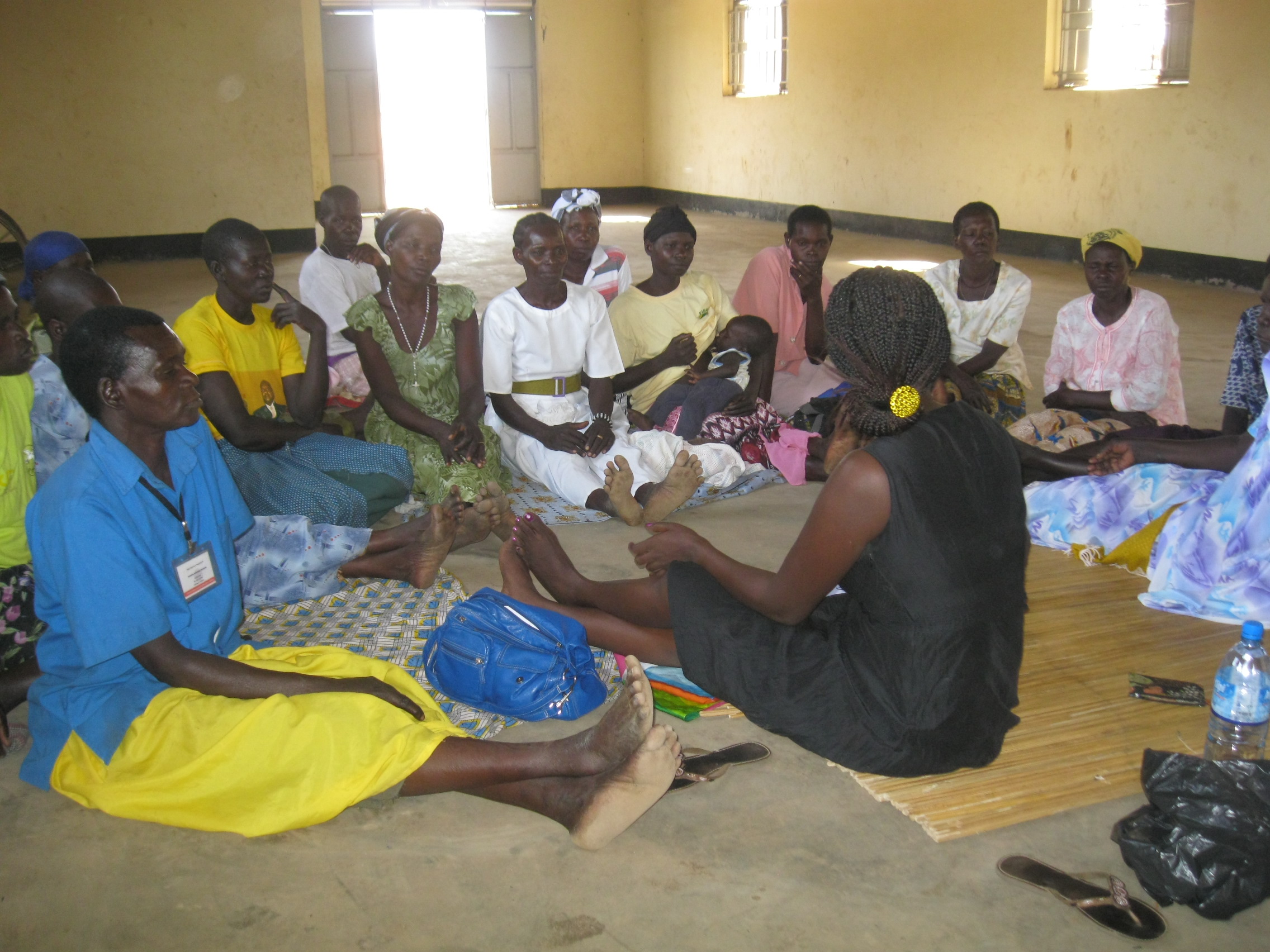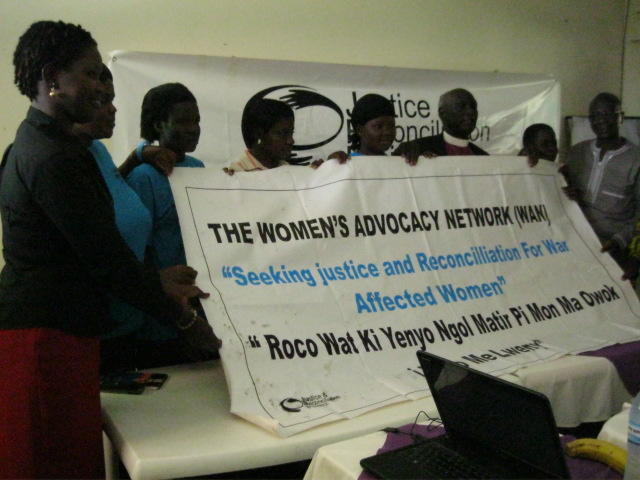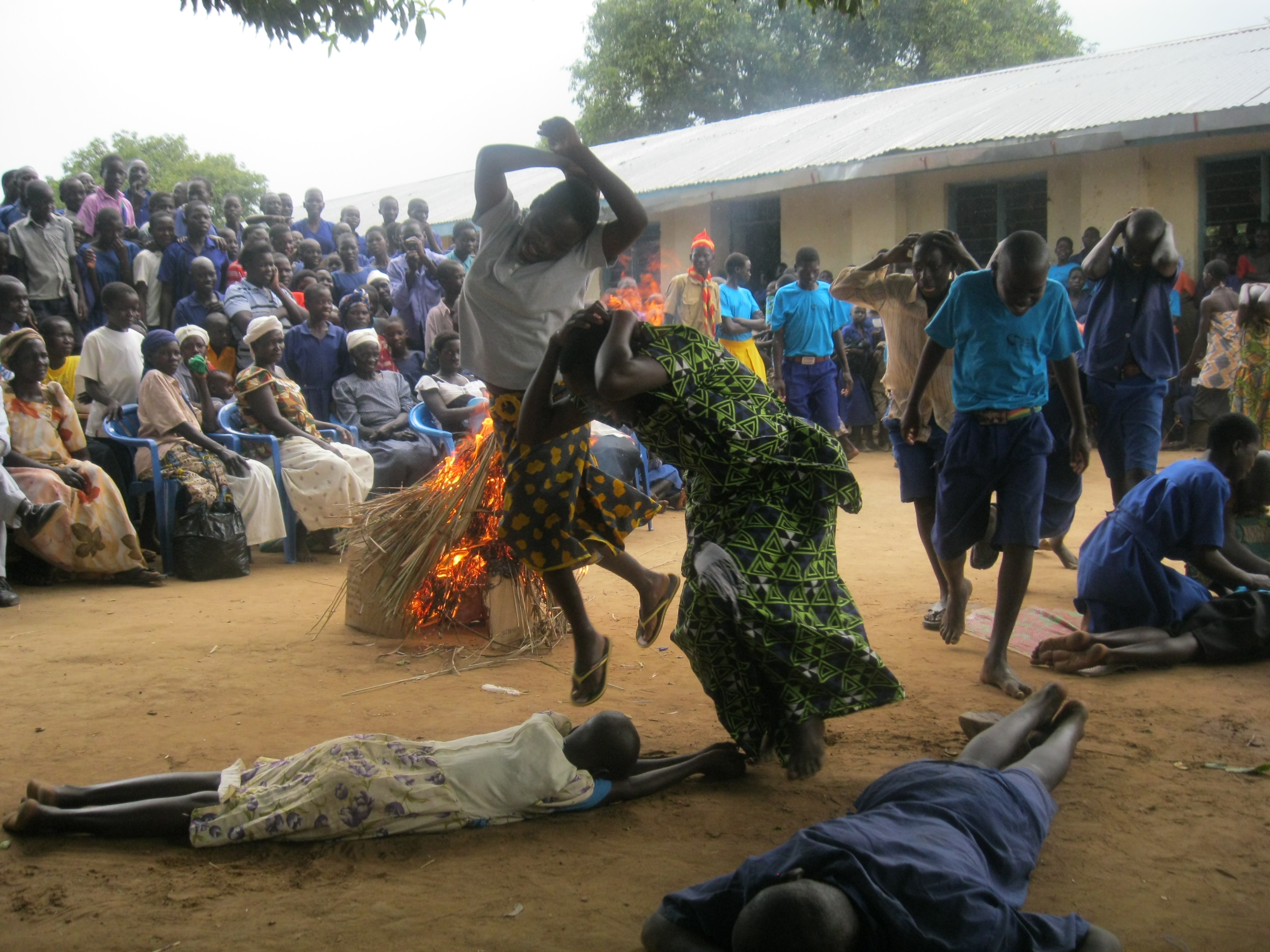
This report presents the findings and recommendations from widespread consultations by the Justice and Reconciliation Project (JRP) on the conflict experiences of men and boys in northern Uganda and how to effectively engage them in redress for conflict sexual and gender-based violence (SGBV).
In the last 10 years in which JRP empowered conflict-affected communities in Uganda to participate in processes of justice, healing and reconciliation, especially through the Women’s Advocacy Network (WAN), most interventions explicitly targeted women and girls. This was largely because women and girls disproportionately suffered from conflict SGBV. Consequently, men and boys were minimally engaged in redress.
Preliminary discussions that JRP held with the communities in which it works revealed that men and boys often felt neglected in recovery interventions by civil society and government institutions. This led to their resentment and even hostility towards women and girls who were beneficiaries of post-conflict programmes and services.
In August 2015, JRP set out to better understand how men and boys could be engaged in redress for conflict SGBV in northern Uganda. The consultations explored the gendered experiences of men and boys during and as a result of the armed conflict; how it affected gender relations in communities and homes and how men and boys have been and could in future be engaged in redress.
A total of 161 respondents in Dzaipi sub-county in Adjumani district, Atanga sub-county in Pader district, Agweng sub-county in Lira district, and Gulu Municipality in Gulu District were consulted. A desk review was also done to assess comparative models for engaging men in gender-based violence prevention and response.
Key findings revealed that members of the community recognised men’s indispensable role in promoting gender equality and supported male engagement in redress for gendered conflict experiences as well as their involvement in the discourses for TJ, healing and reconciliation.
The recommendations focused on four key areas of improving relationships between women and men in the community; providing greater acknowledgment and redress; engaging men in redress for their experiences; and for engaging men in redress for women’s gendered experiences. The specific recommendations are summarised below under each are of focus.
Improving relationships between women and men in the community
- Create safe spaces for men and women to discuss issues together such as meetings and gatherings where they would face each other and learn lessons together.
- Organise community dialogue on gender and dealing with the past.
- Provide mixed-sex trainings on conflict resolution and gender equality whereby the men and women would be educated together to reduce on the level of conflict in the homes.
- Promote group sensitisation and peer support for members in the community.
- Form initiatives for conflict mediation, healing and reconciliation through, for instance, peace building groups of duty bearers, communal meals and prayers for reconciliation and forgiveness.
- Attend religious associations.
- Provide support towards economic empowerment through livelihood projects to uplift people from abject poverty.
- Enforce laws strictly especially those prohibiting alcoholism.
- Establish rehabilitation centres to offer psychosocial support, counselling, grassroots information and education.
- Advocate for behavioural change to address moral decadence across all the communities attributed to encampment and urbanisation.
- Provide reparations and/or assistance to victims of conflict.
- Create community projects to bring people together and provide information.
Providing greater acknowledgment and redress
- Create community projects in a way that will not only acknowledge the pain of the war but also bring people together.
- Form groups for collective advocacy especially in seeking material support for recovery; for training; truth telling and reconciliation,
- Identify and engage male activists to understand their rights and responsibilities as well as create a better understanding of men’s problems in order to get solutions.
- Integrate men’s empowerment into programmes of development partners and stakeholders by involving them in community meetings and WAN groups.
- Put in place peer support forums for men to speak out and share their problems and concerns.
- Implement community and family projects as a means of providing acknowledgement and redress.
- Increase support towards formal and vocational education/training.
- Implement affirmative action targeting men and boys in development and reintegration projects.
- Provide reparation in terms of social services by government as well as awareness creation and legal aid services by NGOs.
- Collect information on numbers and current status of conflict survivors to inform project design and funding support to enable them to receive appropriate support and redress.
- Set up rehabilitation centres for psychosocial support to children and adults with mental health issues.
Engaging men in redress for their experiences
- Form male groups for them to get counselling, gather and share opinions on issues concerning them, with influential or role models leading advocacy for the groups and mentoring members.
- Form mixed groups of men and women so that they can share experiences.
- Involve men and boys in training, workshops and other experience-sharing activities of WAN and other stakeholders.
- Engage role models to educate fellow men about the importance of groups; inspire and encourage them to air out their concerns and demand their right to receive recovery support.
Engaging men in redress for women’s gendered experiences
- Engage men in their spouses’ group activities so that they are informed and their understanding is enhanced on women’s redress issues in order for them to advocate for women’s rights; curb domestic violence and give views on how to support women.
- Train men and build their capacity on peace building.
- Initiate group projects of men and women for them to understand women’s rights; have a common understanding of goals; and share how to collectively achieve them.
- Advocate for behavioural change to refrain from gossip and instead get involved in meetings where women share their stories, experiences and issues.
- Involve men and women in joint Village Savings and Loan Associations (VSLA) as a way to achieve economic independence and in order to allow them to prepare well for their future and that of their children.
- It is hoped that through the report, future interventions that mainstream gender equality would address not only women’s gendered experiences, but also that of men and boys, ensuring that efforts for recovery and rehabilitation do not exclude or undermine men’s and boys’ gendered experiences.
Improving relationships between women and men in the community
- Create safe spaces for men and women to discuss issues together such as meetings and gatherings where they would face each other and learn lessons together.
- Organise community dialogue on gender and dealing with the past.
- Provide mixed-sex trainings on conflict resolution and gender equality whereby the men and women would be educated together to reduce on the level of conflict in the homes.
- Promote group sensitisation and peer support for members in the community.
- Form initiatives for conflict mediation, healing and reconciliation through, for instance, peace building groups of duty bearers, communal meals and prayers for reconciliation and forgiveness.
- Attend religious associations.
- Provide support towards economic empowerment through livelihood projects to uplift people from abject poverty.
- Enforce laws strictly especially those prohibiting alcoholism.
- Establish rehabilitation centres to offer psychosocial support, counselling, grassroots information and education.
- Advocate for behavioural change to address moral decadence across all the communities attributed to encampment and urbanisation.
- Provide reparations and/or assistance to victims of conflict.
- Create community projects to bring people together and provide information.
Download this field note here (pdf)








